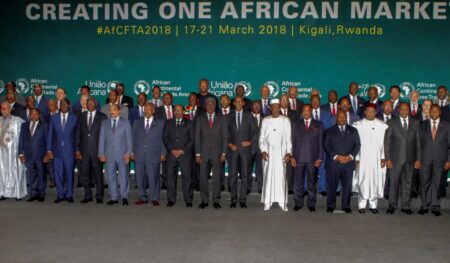Africa remains one of the regions with the greatest growth potential in the world with African organisations focusing their growth strategies beyond borders. With these growth strategies come complex new risks which demand sophisticated cross-border insurance solutions. Doing business between different African countries means that all involved need comprehensive cross-border insurance, as this can protect operations by covering all potential risks that may arise between different legal frameworks. DLA Piper’s Luc Bigel and Hamza Akli share insight on Africa’s challenges in this regard and how to structure an efficient, cost-effective insurance programme for cross border risks.
What are the main challenges to trade in Africa, particularly with regard to potential business loss?
We believe there are two main challenges, depending on the situation in which the investor or partner finds themselves. The first is that of solvency. Indeed, in many African countries there is an obligation to use local players to provide insurance cover, at least on the front line. In our view, these protective rules are an opportunity for African countries to develop their own insurance industry. However, the difficulty stems from the fact that the solvency rules of local insurers are not yet uniform, such as in Europe, and they may have limited coverage capacities in terms of amounts. Thus, to these first frontlines, we add second line or other policies (master / umbrella) whose purpose will be to enable compliance with the local requirements of African countries while allowing the investor to match his level of risk exposure with corresponding coverage capacities.
It is clear that the real issue is therefore to match the capacities of the global insurance market while adhering to local constraints. In this respect, reinsurance can be a useful solution. There is also the challenge of agreeing on the typology of insurance to be put in place. Not all insurance has the same purpose. This work of completeness between the market offers and the content of the project contracts must involve collaboration between the lawyer, the risk manager and the broker or insurer. This collaboration makes it possible to limit risk exposure as much as possible.
Read:How Technology Has Changed the Way We Trade Forex
What are the insurance policies that would cover these potential losses?
There are several insurance policies that are intended to be mobilized and, in this respect, it should be noted that there are several influences on the insurance market in Africa. Some regions, with more Anglo-Saxon influence, will experience slightly different insurance mechanisms from the French-speaking regions of influence.
There are schematically three types of cover relating to the implementation of a project, the exact contours of which vary according to the African countries. The first type of coverage is construction site coverage. The purpose of this cover is to protect against any damage affecting the construction site until the completed project’s delivery. Thus, when the building site is a few weeks old, the eventual compensation is quite low which is not the same as when the building site is a few days away from its delivery and a fire breaks out.
The second type of coverage is contractor’s liability. It can happen that, in the course of a project or construction, a contractor realizes the financial consequences of damage that will have to be repaired.
Finally, the third coverage is that attached to the construction itself. Its purpose is to cover construction defects in a manner uncorrelated to civil liability. In addition to these insurance types relating to the conduct of a project, there are also the insurance policies intended to cover the conduct of the infrastructure activity such as multi-risk or business interruption insurance – which are particularly useful. We are also witnessing an emerging phenomenon, that of the implementation of cyber coverage intended to cover damage of this nature.
How does regulation, and the different regulation regimes from state to state, come into play when looking at a cross-border insurance programme?
Such differences need to be considered especially now, as we can witness that the insurance sector in Africa is evolving because of the regulatory changes that are impacting the market. We strongly believe that this new regulatory framework being implemented should not be viewed as a brake or constraint on a cross border insurance program but as a genuine development challenge. The main topic is that of local compulsory insurance, local retention, or the establishment of a local first line. These points are the most important to consider and require case-by-case studies.
Read:Virus update: COVID-19 induced East Africa’s border saga
What are the key factors to consider in setting up a cross-border insurance structure?
As just previously mentioned, the regulatory environment should be taken into account, particularly at the moment, with the support of local branches that have a clear vision of the hurdles to overcome region by region. The insurance system and the regulatory requirements as well as the market practices may vary greatly, not only the region where the project is considered but also depending on the moment the investors are willing to engage in such a project.
It is necessary to have a clear vision of the risks that may affect a project, of the local insurance market and of the compliance rules of the states in question. Such visions cannot be achieved without a strong local support and a deep analysis of the regulatory environment.
What are the different options or types of cross-border insurance structures? Is there a best option?
Unfortunately, there is no magic formula! The best option is team cooperation as well as legal and insurance cooperation in order to set up a programme that meets the needs of investors and is compliant with each of the local regulations.
Are there legal compliance requirements associated with African trade and the necessity of cross-border insurance?
There are rules for the use of local insurers (especially primary insurers) as well as local compulsory insurance. Each legislation is particular and specific to each region.
Written by:
Luc Bigel, DLA Piper France Counsel
Hamza Akli, DLA Piper France Associate










